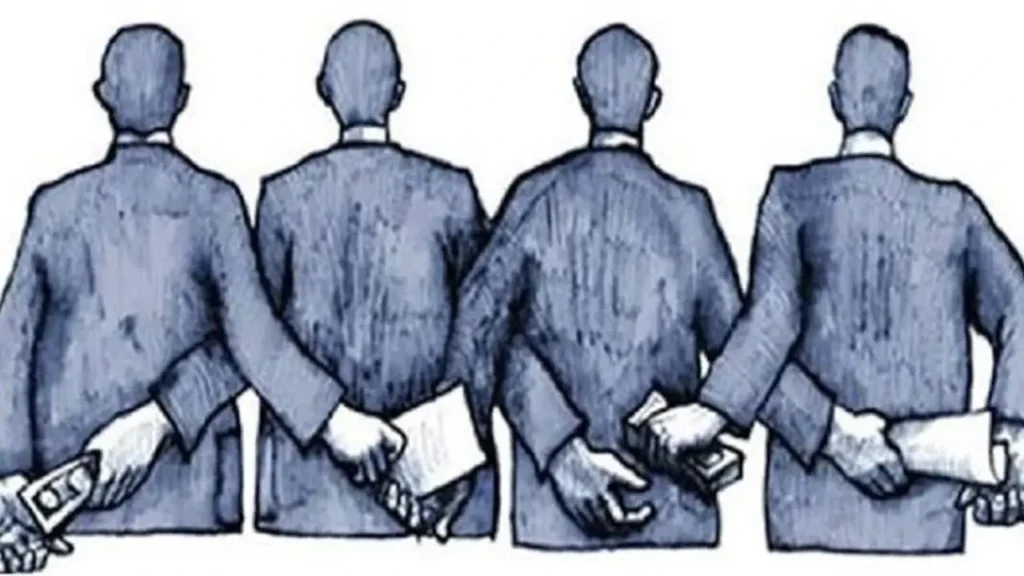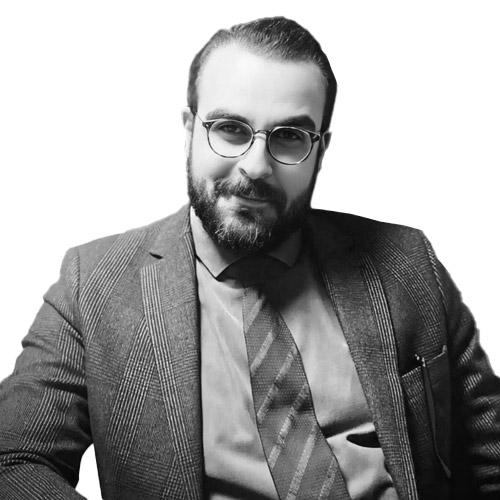The downfall of a nation often begins quietly, beneath the surface. Even if the cracks are not heard aloud, the tremors echoing beneath its foundations grow stronger with time. First, the society loses its way in an invisible fog; then illusions replace truth, labels take the place of knowledge, and blind obedience and loyalty supplant merit. In such a climate, it is not only individuals who lose their identity—concepts themselves are stripped of meaning. Academia positions itself against science, the intellectual stands against truth, and the “diploma” becomes a symbol not of labor and authenticity, but of its very negation. I would like to begin by emphasizing that the fact that nearly four hundred individuals in Turkey have obtained academic titles with fraudulent diplomas—and that some of them are currently employed in various higher education institutions—is not merely a criminal offense. This phenomenon, as French philosopher and social theorist Michel Foucault articulated in his book The Order of Things, is a manifestation of a profound “epistemic rupture.” It reveals a system in which knowledge is no longer anchored in truth but in power, and where truth is not represented but designed. Thus, the fake academic is not merely a fraud; they are a living, breathing embodiment of the system’s capacity—and indeed its tendency—to distort reality.
In a societal order where the distinction between the counterfeit and the genuine has become blurred—and where, in fact, counterfeit practices have been institutionalized as a new norm and gained widespread acceptance—the news that nearly four hundred individuals with fake diplomas are employed at universities in Turkey may have initially been presented as a scandal. Yet, I believe this is, in essence, nothing more than one of the many outcomes consistent with the internal logic of the system itself. The real issue, therefore, is not how the frauds managed to rise through the ranks, but rather the mode of thought and operation of the power structure that enabled their ascent. It is crucial to underline this point. Michel Foucault’s analyses on the knowledge-power nexus are particularly illuminating in this context. Foucault argues that power is not merely repressive but operates as an organized network—one that functions through its capacity to produce, regulate, and distribute knowledge. He emphasizes that “knowledge” is not only what is known, but also—and perhaps more importantly—what is shaped by power and placed into circulation within the public sphere. Regrettably, I must state that academic titles in Turkey today are no longer determined by one’s relation to knowledge, but by one’s relation to power. Universities have ceased to be institutions that generate and process knowledge; instead, they have become saturated with representations of knowledge dictated by power. The counterfeit that permeates the public sphere in all its forms is simply the most visible layer of these representations. What we are confronting is not merely the replacement of truth, but a form of counterfeit pragmatism that is actively encouraged, supported, and often rewarded within the system itself. Once again, Foucault’s notion of the “disciplinary society” provides a useful framework for understanding how this structure operates. In contrast to the disciplinary society—which produces mechanisms that educate, observe, classify, and normalize individuals—the institutional and public structures in Turkey appear to operate a reversed model of social praxis. This model turns a blind eye to fraud, reduces observation to arbitrariness, classifies individuals through loyalty and submission, and defines the boundaries of normality not by truth but by obedience. In such a setting, the fake academic is not a deviation from the system, but rather a different expression of the “acceptable academic” type constructed by the system itself.
While it is certainly accurate to speak of a collapse in both individual and collective morality, it would be incomplete to explain this collapse solely through personal intentions. This is because morality—much like knowledge—is a domain through which power reproduces itself, and individuals regulate themselves according to the norms established by that power. However, in Turkey, this self-regulation does not function in relation to knowledge, competence, or truth. Rather, it operates in accordance with the system’s standards of loyalty and submission. Loyalty has replaced knowledge, affiliation has replaced merit, and illusion has replaced truth. This transformation is not the result of a sudden deviation, but rather the outcome of a long-standing and increasingly institutionalized logic of power. In this context, Foucault’s concept of episteme—which I previously referred to in terms of a “rupture”—becomes especially relevant. The episteme, that is, the mode of thinking and knowing that defines a particular historical era, now indicates that in present-day Turkey, it is no longer authenticity but falsity that constitutes the prevailing episteme.
Let us continue with a contemporary example. Academics holding fake diplomas are not merely actors who have maximized their personal gain; they are also a radical revelation of the nature of the system’s relationship with knowledge and truth. Their ascent reflects the internal logic of a structure in which not wisdom but appearance, not competence but affiliation and loyalty, not inquiry but obedience is rewarded. At this point, the issue is no longer about the authenticity or intrinsic value of diplomas, but about what the diploma itself has come to represent. In a society where the diploma ceases to signify authority grounded in knowledge and effort, and instead becomes nothing more than a bureaucratic business card, neither knowledge nor institutional trust can be considered legitimate. This is precisely where the German sociologist Niklas Luhmann’s theory of trust and Michel Foucault’s analysis of the knowledge-power nexus converge most starkly: the loss of trust is not merely an emotional reaction, but a structural symptom of a malfunctioning social system—a signal flare alerting us to the dire state of that society’s very sociology.
It is important to emphasize that the concept of “power” I am using here does not refer solely to its particular form—that is, to governments, political parties, or purely political spheres. Rather, I refer to power as encompassing the entirety of the public domain. Once we consider the distinct spheres of cultural, economic, legal, and scientific power, the notion of power transcends its narrow definition as a matter of governance and legislation. It assumes a more universal form—one that certainly includes political authority, but is not limited to it. It is in this broader, universal sense that I employ the term throughout this discussion.
The relationship between society and knowledge cannot be explained through mere individuality or independence. Society acquires knowledge by associating it with the institutions that serve as its organic source. When someone is called an academic, we presume that this individual possesses a certain level of knowledge—and we concretize that assumption through the institution of the university. However, in a context where this assumption is invalidated—where fake diplomas are in public circulation—it is not just individual doubt that emerges, but institutionalized societal distrust. What we encounter at this point is not a form of biopower, in Foucault’s terms, but rather a form of logopower—logos-power. In other words, symbolic authority that replaces truth and authenticity. These symbols—be they diplomas, titles, or academic posts—whatever form they may take, no longer serve the function of representing knowledge. Their function now is to signify the lines of loyalty and submission drawn by power. As such, knowledge is reprogrammed from the outset—not to reproduce truth, but to reproduce obedience. And what is worse? Let me answer that question by recalling Kafka: Getting used to it.
What is counterfeit is not merely “counterfeit”; it is also legitimate. For the system does not exclude the counterfeit—on the contrary, it incorporates and normalizes it. In this normalization process, the collective silence of the media, politics, and bureaucracy plays a crucial role. The social silence that emerges, emboldened by this collective muteness, marks perhaps the most unfortunate level a society can descend to—intellectually and cognitively. Yet this universal inertia does not always stem from ignorance alone; it can also originate from a deep solitude—born of not being part of the falsity that dominates the system. This is precisely what Hannah Arendt referred to with her concept of the banality of evil, which also serves as the title of her well-known book. Societies no longer find falsity disturbing; they turn a blind eye to it as long as it does not directly affect them. When we recall Foucault’s concepts of discipline and surveillance, we become aware of the deepest irony of the current system: that we live not within a structure where the counterfeit is observed, condemned, and exposed—but rather one in which it is protected. We inhabit a structure where the counterfeit is legitimized, normalized, made attractive and acceptable. A structure whose polluted oxygen sustains not only fake academics, but also fake opinion leaders, fake moralists, fake clerics, and fake media actors—all breathing comfortably within a negative universe. And the most painful part is reaching the awareness of being condemned to breathe in that corrupted air.
It is abundantly clear that this issue is not merely an educational one. Rather, it is a profound intellectual, cognitive, political, individual, and social crisis—framed around the notions of truth, legitimacy, and ethics. The problem is not limited to academia. All forms of public counterfeit are not accidental deviations produced by the system, but direct manifestations of its internal logic. As long as this inclination toward illegitimacy persists, it is not only diplomas that are at risk of falsification, but the very conscience of society as a whole. Every society is built not only upon laws, but also upon a shared ethics—what Avicenna (Ibn Sīnā) referred to as hiss-i müşterek, or “common sense.” This ethical awareness is often stronger than written rules, for people tend to perceive justice not merely through legal codes, but through an intuitive understanding of what is just. Therefore, when trust collapses in a society, it is not only institutions that decay. Human relationships, intergenerational traditions, and even language itself begin to unravel. Ethics is the invisible weave of the social fabric; when it frays, it is not only behaviors that deteriorate, but also the forms of belonging, the sense of mutual responsibility, and collective visions of the future. Modern society relies above all on trust—because the complex systems that govern our lives, and which we cannot always see or understand, can only be held together by this invisible glue. This is why a crisis of trust is not merely a failure of public administration; it is a threat directed at the very process of socialization itself.
Today, we sadly observe the collapse of that fragile contract between the individual and the institution in Turkey. To borrow from Rousseau: in a system where promises have been made but not kept, truth begins to lose its weight. It is no longer about telling the truth, but about appearing truthful. Here, ethics is no longer merely a matter of conduct—it becomes an ontological question: Do we truly exist, or do we merely appear to? And the answer to this question lies not only in forged diplomas, but in everyday life, in workplaces, on screens, in classrooms—in short, in every corner of the public sphere, and yet, also in mirrors.
Throughout the history of civilization, we see that whenever trust has been lived not as an abstraction but as a concrete relationship, societies have been able to reconstitute themselves, to renew and sustain their own existence. Otherwise, individuals become trapped within their own solitary suspicions—not only ceasing to be individuals in any meaningful sense, but also forfeiting the possibility of being a society. As Jean-Jacques Rousseau once said, “Man is not born in chains, but he weaves his own chains in silence.” And today, it is with sorrow that we must acknowledge that the chains of our time are forged from moral silence. Because, as the renowned Bulgarian-born writer and playwright Elias Canetti so powerfully put it: “A crowd is silent only as long as it believes. But when a crowd that has lost its belief falls silent, it is no longer silence—it is collapse.”


